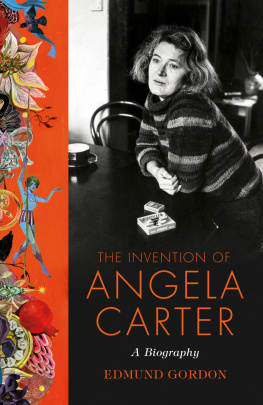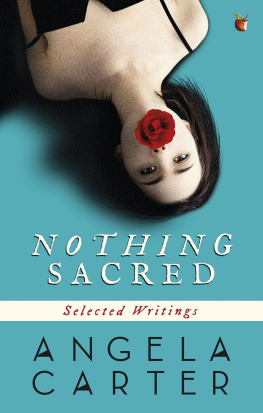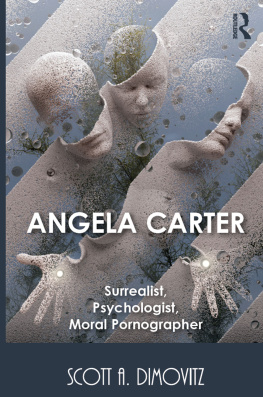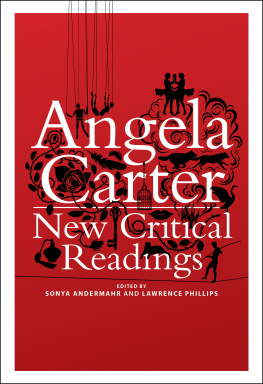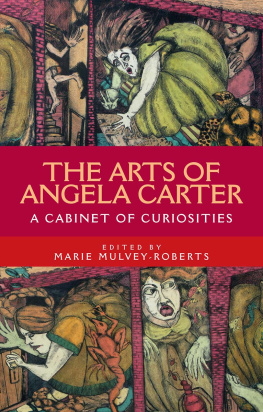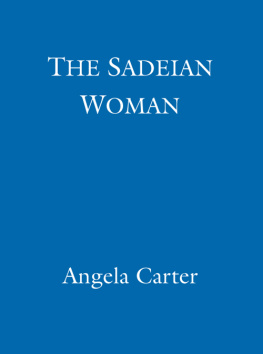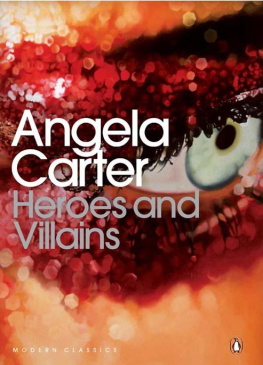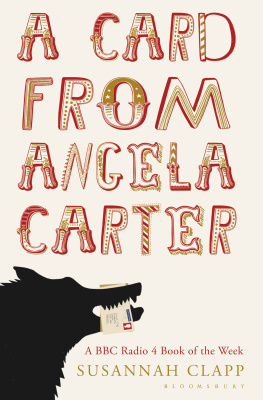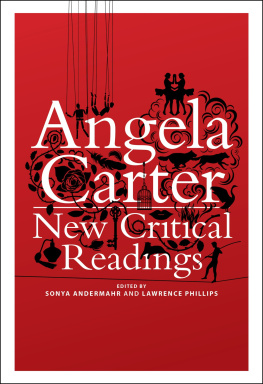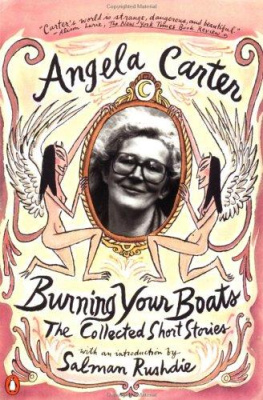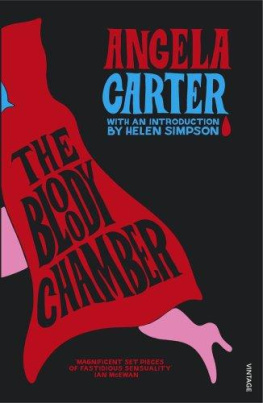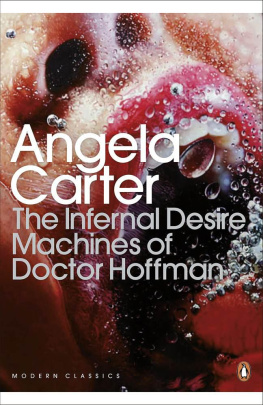Acknowledgements
Of the many debts of gratitude Ive incurred while writing this book, the most significant are to Mark and Alex Pearce, who gave me their time and eased my way, but never sought to interfere with what I wrote. Few biographers can ever have been so fortunate in their dealings with a literary estate. Susannah Clapp, as Angela Carters literary executor, took a huge risk in appointing me, and has been answering my questions and fielding my anxieties ever since. I hope she knows how grateful I am.
For sharing their memories of Angela with me (and in many cases for allowing me to see letters, diaries and photographs), Im indebted to Fleur Adcock, Jacqueline Anthony, Lisa Appignanesi, Sozo Araki, Paul Bailey, Pat Barker, Paul Barker, Mark Bell, Roger Bing, John Boothe, Naomi Brent and Kaktus Leach, John Brodie, Alan Brooke, Sandy Brown, A. S. Byatt, Lynne Bryan, Wendy Burford, Liz Calder, Carmen Callil, Shirley Cameron, Peter Carver, Peter Conradi, Robert and Pili Coover, Andrew Cowan, Christine Cox, John Cox and John Hayes, Tony Crofts, Neil Curry, Christine Downton, Rikki Ducornet, Anne Enright, Nicola Farthing, Neil Forsyth, Christopher Frayling, Elizabeth Graver, Zulfikar Ghose, Lennie Goodings, Tony Gould, Reg Hall, John Henty, Gary Hicks, Richard Holmes, Ted Holst, A. M. Homes, Edward Horesh, William Hossack, Rebecca Howard, the late Carole Howells, Martin Hoyle, Kazuo Ishiguro and Lorna MacDougall, Neil Jordan, Jay Jeff Jones, David Michael Kaplan, Jo Ann Kaplan, Hanif Kureishi, Hermione Lee, John Lockwood, Ray Lowry, Ian Maclean, the late Sara Maclean, Ian McEwan, Ann McFerran, Adam Mars-Jones, Pauline Melville, David Miller, Rick Moody, Andrew Motion, Michael and Linda Moorcock, Andrea Newman, Jenny Orsborn, Ursula Owen, Glenn Patterson, Caryl Phillips, Erica Rex, Neil Roberts, Janice Robertson, Jill Quantrill Robin, the late Deborah Rogers, Marsha Rowe, Salman Rushdie, Corinna Sargood and Richard Wallace, Henry Scott Stokes, Helen Simpson, Oscar Smazlen, Philip Spencer, Harriet Spicer, Joan Stalker and the late Hugh Stalker, Joe Steeples, Peter and Janet Swan, Sharon Tolaini-Sage, Colm Tobn, Lorna Tracy, Andrew Travers, Marina Warner, Simon Watney, Kate Webb, Fay Weldon, Naine Woodrow and Jack Zipes.
Ive relied on the expertise of countless archivists and librarians while researching this book. Id like to thank the staff of the BBC Written Archives, the British Library, the Bodleian Library at the University of Oxford, the Brotherton Library at the University of Leeds, the Colindale Newspaper Archive, the Dobkin Collection, the Emory University Manuscripts Library, the Harry Ransom Center at the University of Texas, the International Anthony Burgess Foundation, the Lilly Library at the University of Indiana, the London Library, the London Metropolitan Archives, the Maugham Library at Kings College London, the Museum of London, the National Archives of the UK, the National Archives of Australia, the National Library of Australia, the National Library of Scotland, the Newcastle University Special Collections, the Ohio State University Rare Books and Manuscripts Library, the State Library of New South Wales, the State Library of South Australia, the University of Adelaide Archive, the University of Bristol Library, the University College London Library and Archive, the University of East Anglia Library and Archive, the University of Edinburgh Library, the University of Reading Library, the Oxford Brookes University Special Collections, the Random House Archive and Library, the Rogers, Coleridge & White Archive, the V&A Library, and the Womens Library at the London School of Economics.
For help with research, Im grateful to Joseph Benavides, Naoko Choja and Simon Hammond. Francesca Wade deserves special mention: almost every chapter has benefited from her prodigious energy, resourcefulness and attention to detail.
My agent, Peter Straus, was in my corner before I ever dreamed of writing a biography of Angela Carter, and has been a source of advice and encouragement at every stage of the process. Thanks also to David Miller, Matthew Turner, and everybody else at Rogers, Coleridge & White. At Chatto & Windus, Clara Farmer (who commissioned the book) and Parisa Ebrahimi (who edited it) have been wonderful throughout. David Milners copyediting, John Garretts proofreading, and the index provided by Chris Bell, have all been amazingly thorough. Thanks to Norman Hirschy and Brendan ONeill at Oxford University Press for supervising the American edition.
Im enormously grateful to Lisa Appignanesi, Ned Beauman, Jon Day, Lara Feigel, Adam Mars-Jones, Leo Robson and Francesca Wade for reading various sections of the manuscript and suggesting improvements; to Lindsay Duguid and John Murray-Browne for donating the beautiful desk at which most of the writing took place; to Colm Tobn and Catarina and James Leigh-Pemberton for providing rural hideaways (on the Wexford coast and in the Aberdeenshire hills respectively) in which I was able to concentrate on my work; to Mayako Murai for looking after me in Tokyo and translating Angela Carters Japanese articles for me; to Christian Lorentzen, Thomas Meaney and Davey Volner for looking after me in New York; to Robert and Pili Coover for showing me around Providence; and to Andrew Biswell, Rowan Boyson, Rick Gekoski, Natsumi Ikoma, Laura Kaye, Karen Shimwell, Danielle Shaw, Ivo Stourton and Andrew Wilson for sharing material and providing new leads. Thanks also to the Royal Society of Literature and the judges of the 2012 Jerwood Awards Richard Davenport-Hines, Caroline Moorehead and Gaby Wood whose provision of 5,000 allowed me, in the early spring of 2013, to visit Japan, and to recreate Angelas first trans-Siberian journey.
Throughout the time Ive been working on this book, Ive been blessed with more than my fair share of generous and inspiring friends. In addition to several of those already mentioned, Id like to thank Alex Mavor, Amelie Hegardt, Adam ORiordan, Andrew OHagan, Ed King, Tamara Atkin, William Brett, Claire Mookerjee, Tom Fleming and Jonathan Beckman. My colleagues in the English department at Kings College London, and my students on the MA in Life-Writing and the MA in English: 1850the present, have all helped sharpen my ideas. My parents, Jane and Richard Gordon, instilled me with a love of reading at an early age; for that, and for many other things, I cant thank them enough.
My wife, Sophie, has tolerated my absences and obsessive behaviour over the past five years with extraordinary good grace. This book is dedicated to her because without her generosity, optimism and strength without her love it could never have been written.
About the Author
Edmund Gordon has written for the Guardian, Observer, London Review of Books, Times Literary Supplement and The Sunday Times, among other publications. In 2012 he received a Jerwood Award for non-fiction from the Royal Society of Literature. He lives in London, where he teaches literature and creative writing at Kings College, London. This is his first book.
About the Book
Widely acknowledged as one of the most important English writers of the last century, Angela Carters work stands out for its bawdiness and linguistic zest, its hospitality to the fantastical and the absurd, and its extraordinary inventiveness and range.
Her life was as vigorously modern and unconventional as anything in her fiction. This is the story of how Angela Carter invented herself as a new kind of woman and a new kind of writer and how she came to write such seductive and distinctive masterworks as The Bloody Chamber, Nights at the Circus and Wise Children.
Edmund Gordon has followed in Angela Carters footsteps travelling to the places she lived in Britain, Japan and the USA to uncover a life rich in adventure and incident. With unrestricted access to her manuscripts, letters and journals, and informed by interviews with Carters friends and family, this masterful biography offers an unrivalled portrait of one of our most dazzlingly original writers.

